We recently connected with David Lee and have shared our conversation below.
David, so great to be with you and I think a lot of folks are going to benefit from hearing your story and lessons and wisdom. Imposter Syndrome is something that we know how words to describe, but it’s something that has held people back forever and so we’re really interested to hear about your story and how you overcame imposter syndrome.
I’m not sure I overcame imposter syndrome; I just got a lot better at managing it. Even now, considering this question, and the invitation for this interview, I find myself wondering if I belong here.
To varying degrees, I’ve experienced – and continue to experience – all the different types of imposter syndrome. For the longest time, I had the feeling that if I wasn’t naturally good at something, it meant that there was something wrong with me. I’ve been able to let go of this one but for me, other manifestations of imposter syndrome are harder to let go of.
To this day, I’m awful at asking for help in my personal or professional life for fear that if I can’t do something excellently by myself then somehow, I’d be found out to be a fake or a failure.
I’ve found therapy to be helpful for me. My therapist has helped to challenge my deeply held internal narratives by presenting facts that I choose to avoid and alternative interpretations about how I perceive myself in the world.
Therapy has also been helpful for me to identify the feelings when they creep up and deploy some coping strategies that I’ve found to be effective for me to suppress my imposter syndrome.
First, “fake it until you make it” is a real thing but you must fake it with humility. When I was just out of college, I think I took the idea of fake it until you make it to an extreme with brazen, cocky assuredness but that was just a mask for the crippling anxiety of imposter syndrome. As I realized that that felt awful and fake, and moreover, as I learned from leaders that I admired who approached their work with both incredible confidence and great humility, I learned that there was a balance to be struck.
Second, and this is an extension of the first, seek out and try surround yourself with incredible people. Throughout my career, I’ve been able to keep the company of mentors and people who are smarter than me and who have taught me and modeled for me ways of being that I would have never learned on my own. And if imposter syndrome is essentially a question of whether you belong, I just told myself if these awesome, smart people want to keep my company and answer my call, then by the transitive property, I must belong with them.
And the third thing, which is the hardest, is to develop a bias for action and learn from failure. The worst part of my imposter syndrome was that I would be so fearful of being discovered as a fraud that I didn’t do anything. Inaction is the worst. Failure is, in and of itself, not a negative outcome if you learn something to build on for the next thing. Doing nothing is the failure. An imperfect thing is still a thing – and if you learn from it, chances are that the next thing will be better.
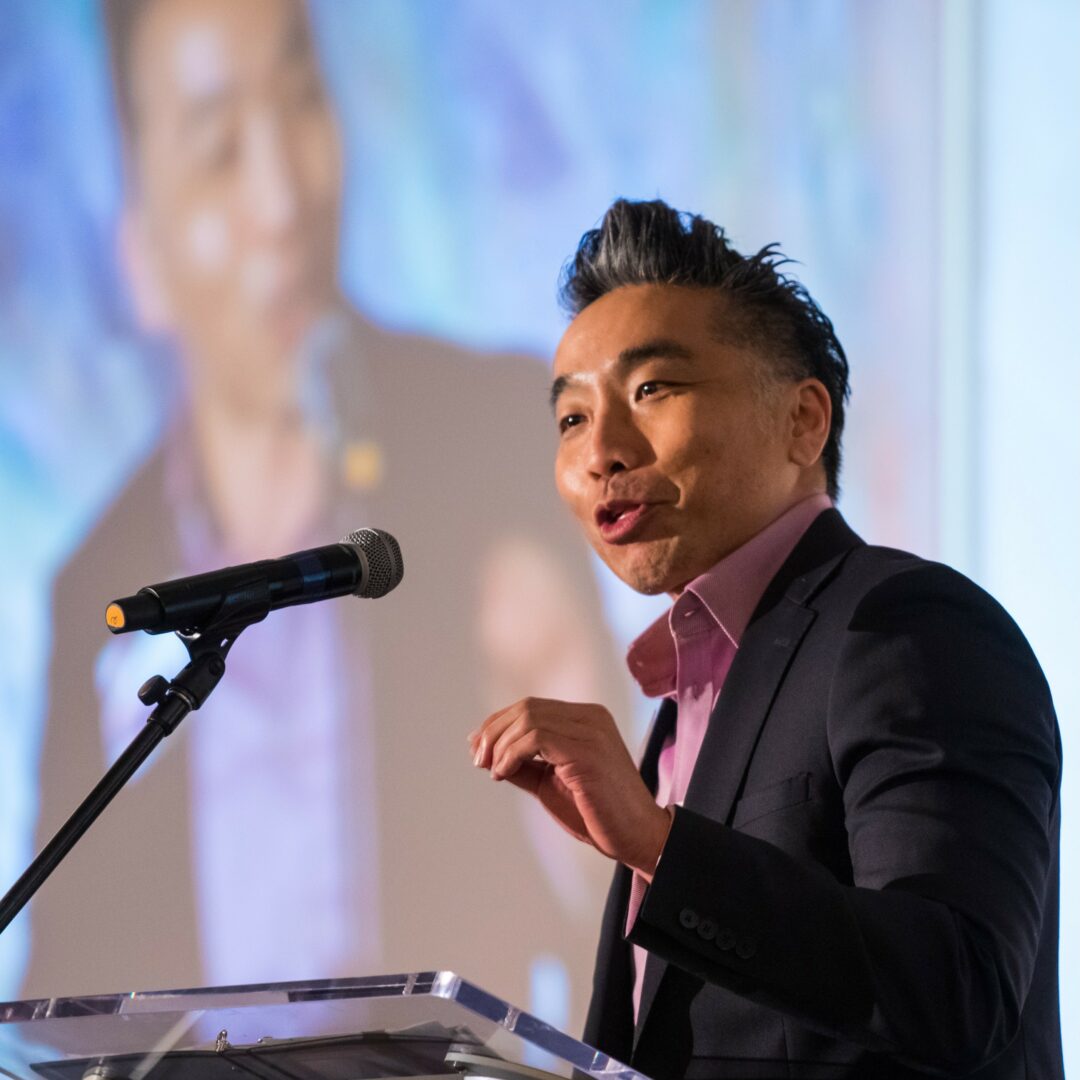
Thanks, so before we move on maybe you can share a bit more about yourself?
I am currently the President & General Manager at WUWM 89.7 Milwaukee’s NPR, southeast Wisconsin’s leading, award-winning public radio station. In this role, I have the great opportunity to lead a merry band of reporters, content producers, and storytellers who work tirelessly to weave stories of our listening region to connect, engage and inspire our listeners and community members with a deeper understanding of themselves, each other, the region and the world.
The most exciting thing we are working on is figuring out how we engage and grow our audiences in an increasingly fragmented media and confusing news landscape. It’s our hope that our work to connect, engage and inspire our audiences through our audio stories, news reports, and in-person events gives them the deep context and trustworthy information they need to effectively participate in the world around them.
I also believe that our work helps to remind people that despite some of the superficial differences we might have as it relates to our various identities, that we are all just a community of friends and neighbors living in this place together, and that fundamentally, we care about each other. Ensuring access to trusted news and inspiring our listeners to see and experience the humanity we all share – what can be more exciting than that?
Well, I guess one more thing: the organization is celebrating our 60th birthday this year. Starting in September, we will be kicking off a six-month celebration with in-person events, special on-air stories, and fundraising initiatives that highlight the many voices, people, and important stories that have made up our 60 years of public service journalism and storytelling.
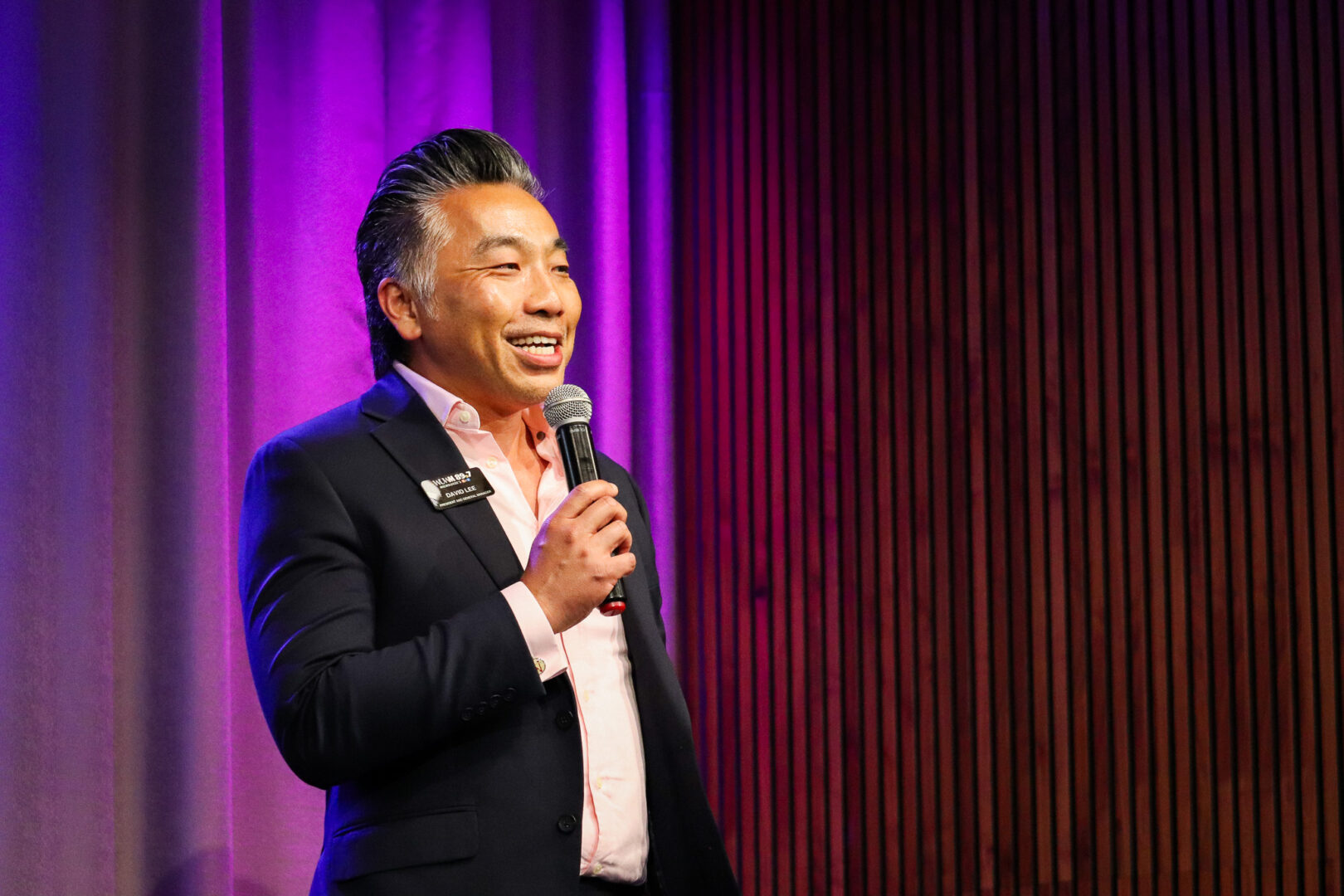
There is so much advice out there about all the different skills and qualities folks need to develop in order to succeed in today’s highly competitive environment and often it can feel overwhelming. So, if we had to break it down to just the three that matter most, which three skills or qualities would you focus on?
Be insatiably curious. Curiosity has been the most impactful trait in my career. It has helped me get from being a professional chef to Wall Street to marketing consultant to screenwriter, actor, director, and finally to leadership roles in non-profits working towards social justice, hunger relief, arts and culture, healthcare, and now public radio. While I had little to no direct experience entering any of those fields, I’ve always had a deep well of curiosity and a willingness to learn. My curiosity has helped me approach challenges and opportunities with a beginner’s mind, which has helped me understand the issues deeply and has on occasion unlocked novel solutions.
Be abundant in your generosity. Throughout my career, I’ve been lucky to have experienced the generosity and grace of others, and I know the impact they’ve had on me, and so I aspire to pay it forward. I’ve approached generosity as a way to foster collaboration, empathy, and trust. By being generous and committing your time, knowledge, and resources to those around you and your team, you create an environment where people feel valued and supported, which helps them be their best selves and do great work. Also, it just feels good to be generous. Nobody ever feels great being stingy.
Be unapologetically whimsical. To me, whimsy is a lens that brings a new, fun way to look at things and it fosters creativity and innovation in ways that conventional thinking simply can’t. At many of the organizations that I’ve led, we have done hard, grinding, important work, and a sense of whimsy has enabled me and my teams to keep from burning out and maybe more importantly, break through barriers and see possibilities and reveal connections in ways that we may otherwise overlook. By embracing the unexpected and finding joy in our work, I’ve worked to cultivate organizational cultures where creativity, ideas, and fun can flourish.
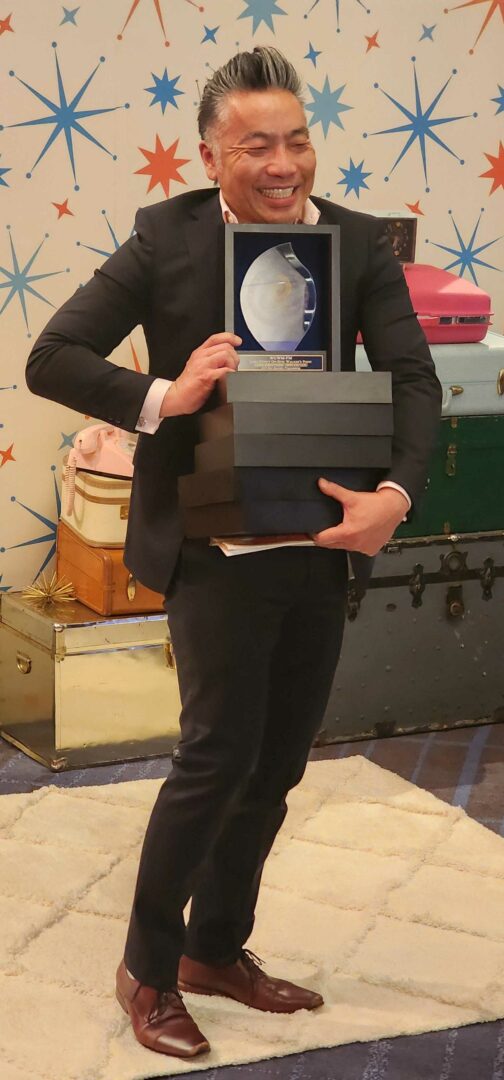
What would you advise – going all in on your strengths or investing on areas where you aren’t as strong to be more well-rounded?
Without a doubt, going all in on your strengths is better for sure. It’s been my experience that when we focus on what we’re naturally good at and operate in the modes that we prefer, it’s just easier to get into a flow state.
This is not to say that I don’t believe that people shouldn’t be well-rounded but focusing on where you are strong is just so much more efficient. You end up swimming with the current, instead of against it. As good friend of mine used to say about his music production, he could do three things really, really well and his work was to find new and interesting ways to do those three things over and over again.
Ultimately, you can’t run from who you are. Over the last 14 years, I’ve taken Gallup StrengthsFinder three times and each time, my top two strength themes have been “Ideation” and “Adaptability.” The first time I got this result, I hated it. “Ideation” and “Adaptability” both seemed so meh when compared to strength themes like “Woo” and “Maximizer,” both of which I wanted.
When I fully accepted that “Ideation” and “Adaptability” were not just some weird things about me but rather that they were a core part of the value that I bring to a team and organization, I leaned into them and found that not only did my career development accelerate, but I was also able to contribute more meaningfully to the organizations that I worked for.
Interestingly, over the years “Connectedness” has slowly crept up from number 5 to 4 and to 3 in my most recent survey. In reflecting about my strengths, I think “Ideation,” “Adaptability,” and “Connectedness” are the correct top 3 for me.
Of course, it’s important to be aware of our limitations, which is why it’s important to surround ourselves with people whose strengths complement and augment our own, but trying to be great at everything is an impossible task.
Contact Info:
- Website: https://www.wuwm.com/
- Instagram: https://www.instagram.com/wuwmradio/
- Facebook: https://www.facebook.com/wuwmradio
- Linkedin: https://www.linkedin.com/in/dleeftw/
- Twitter: https://x.com/atmedlee
- Youtube: https://www.youtube.com/@wuwmradio
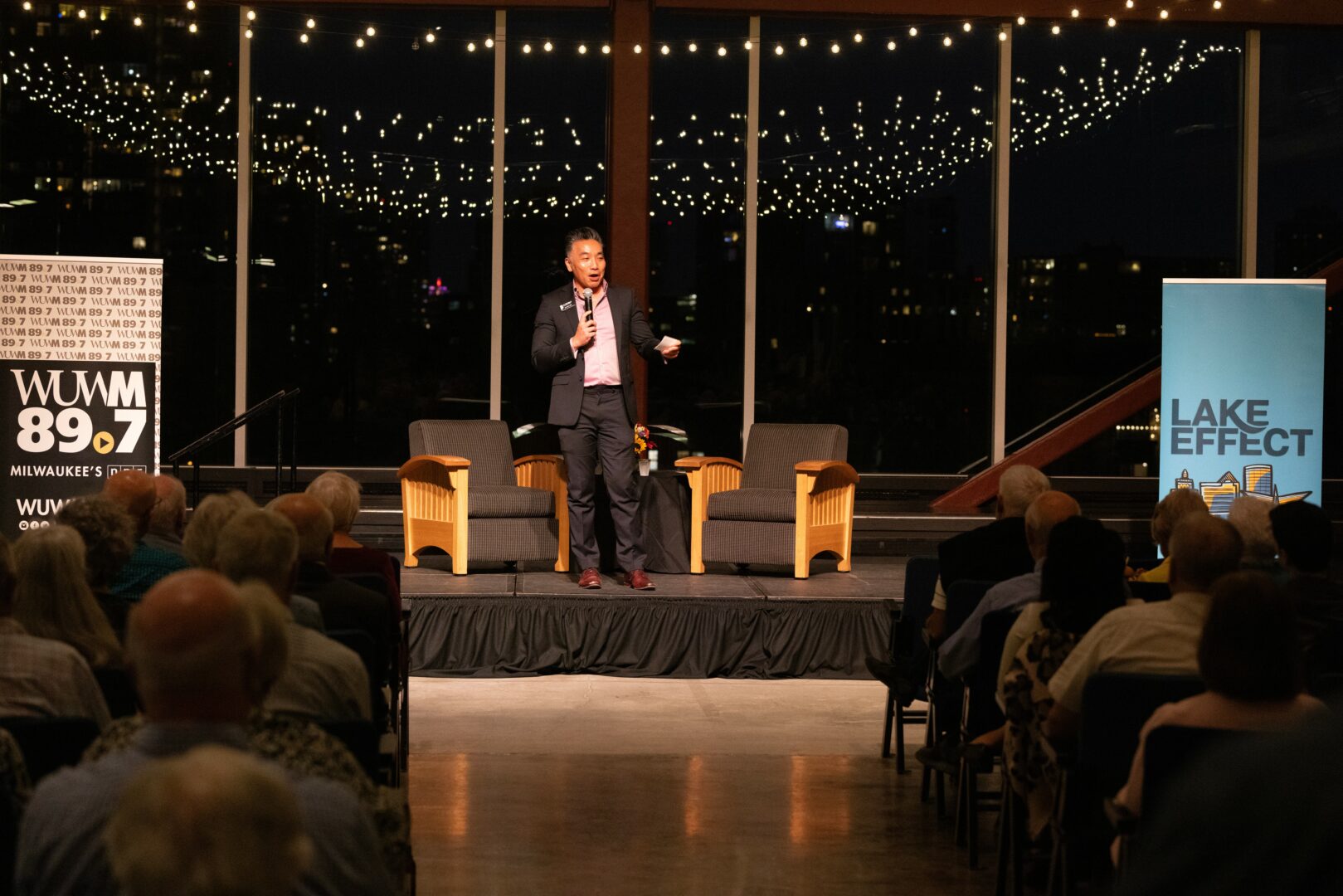
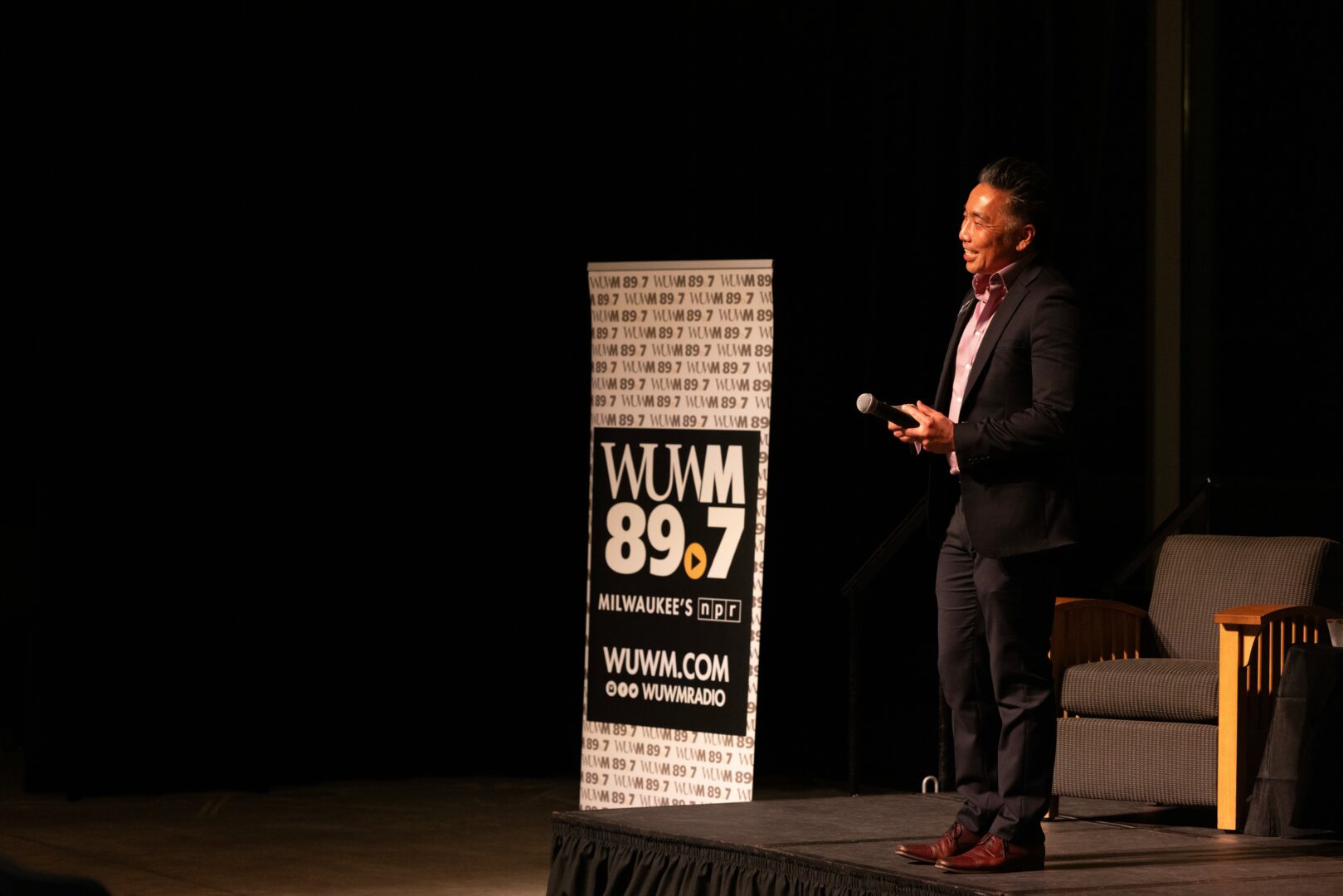
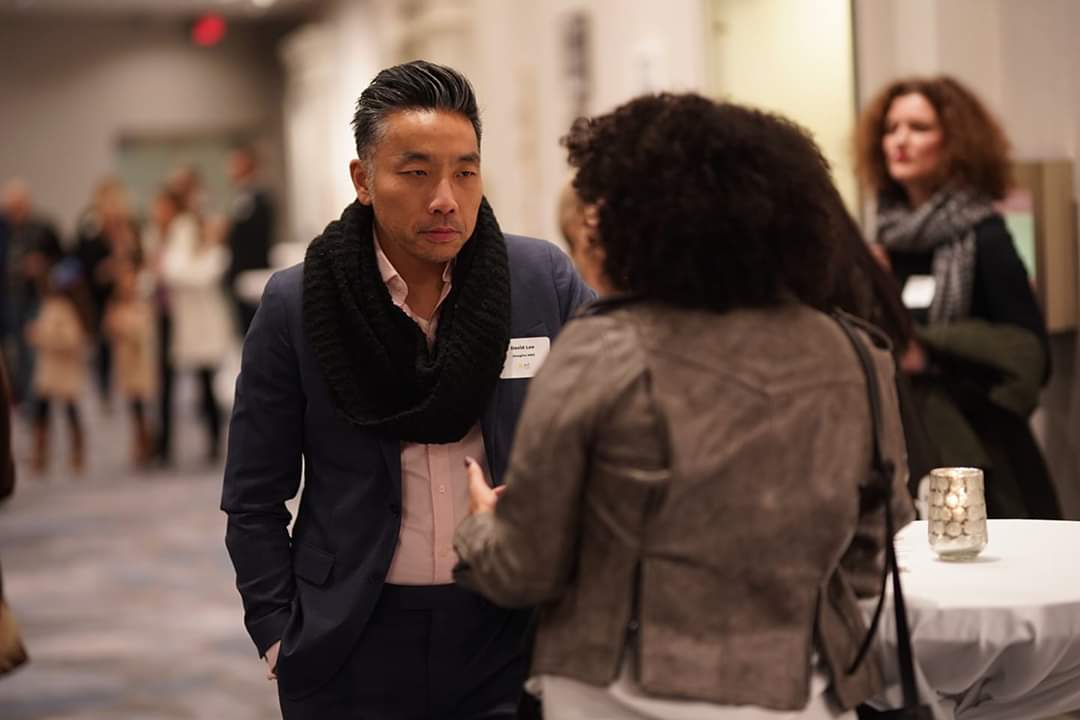
Image Credits
Personal Photo: Samer Ghani
Credits for Additional Photos (in order of upload):
1. Samer Ghani
2. Erin Bagatta
3. Jennifer Nebbia
4. Troye Fox
5. Troye Fox
6. Jeff Cannady
so if you or someone you know deserves recognition please let us know here.




